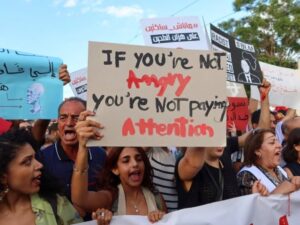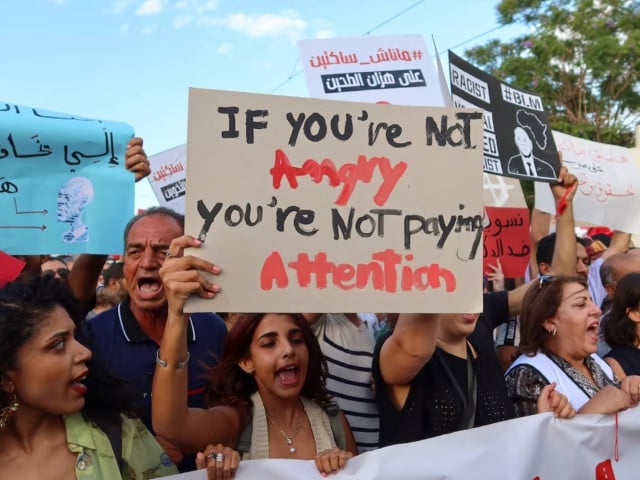
Thousands of Tunisians took to the streets on Friday to protest against President Kais Saied, accusing him of manipulating the upcoming October 6 presidential election through the detention and intimidation of political rivals. This demonstration, one of the largest Tunisia has seen in two years, highlights growing concerns that Saied’s actions since taking power in 2021 represent an authoritarian shift.
Protesters chanted slogans such as “Out with dictator Saied” and “No fear, no terror, streets belong to the people,” denouncing what they perceive as Saied’s efforts to undermine the democratic process. They also demanded the release of political prisoners, activists, and journalists who have been detained for opposing the president.
The controversy surrounding the election escalated in August when the electoral commission disqualified three prominent candidates, citing alleged irregularities. Although a court ordered their reinstatement on September 2, the commission, which critics argue is biased due to Saied’s appointments, has refused to comply.
Bassam Trifi, head of the Human Rights League, expressed concerns about the election’s fairness, stating that the electoral commission’s disregard for the court ruling threatens the democratic process. Trifi warned that freedoms and rights in Tunisia are at “real risk” under Saied’s rule.
Currently, only three candidates are left in the race: President Saied, Zouhair Maghzaoui, and Ayachi Zammel. Zammel was jailed 10 days ago on charges of falsifying voter signatures, which he claims are politically motivated. He faces 25 court cases related to these allegations and may be forced out of the election.
Opposition parties have strongly criticized Saied’s crackdown on political dissent. Former health minister and Islamist Ennahda movement member Abdellatif Mekki, who was arrested in July on political charges, was initially barred from running for office but was later reinstated by court order. However, the electoral commission has yet to comply with this decision.
Ahmed Neffati, Mekki’s campaign manager, stressed the importance of mass mobilization, asserting that Tunisians will not relinquish their right to free and democratic elections.
Critics argue that Saied’s decision to rule by decree in 2021 undermines the democratic progress made since Tunisia’s 2011 revolution. Many opposition leaders, imprisoned under Saied’s government, accuse him of consolidating power through authoritarian tactics.
International observers, including the International Crisis Group and Human Rights Watch, have raised alarms about Tunisia’s political climate. Human Rights Watch recently condemned the repression of opposition candidates as a violation of Tunisians’ rights to free and fair elections.
Despite the mounting opposition, President Saied denies any wrongdoing, claiming his actions are essential to combat corruption and protect the country. However, the widespread protests reflect deep dissatisfaction with his leadership and growing fears for the future of Tunisian democracy.



